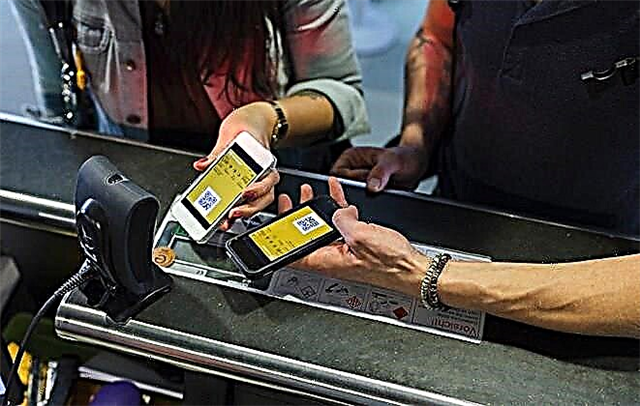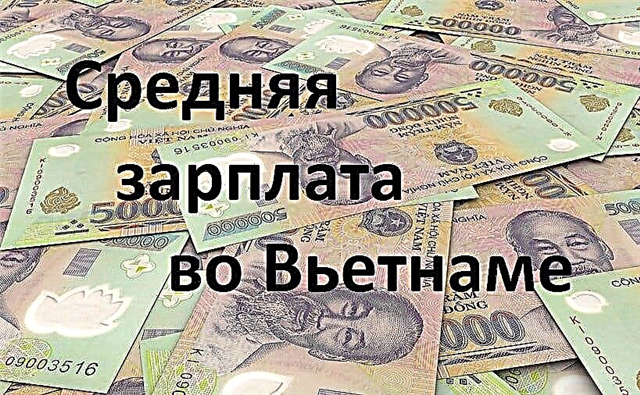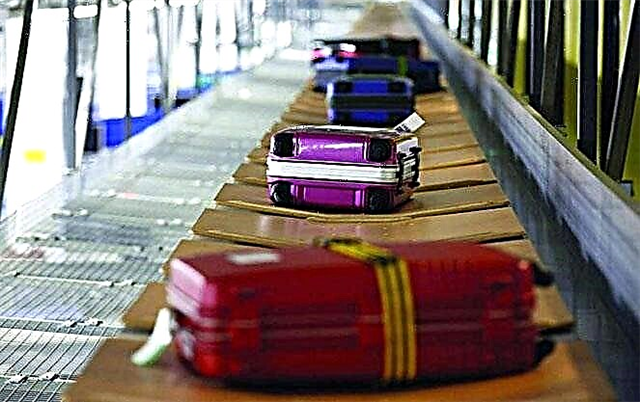The Czech Republic is a country that is a member of the European Union, therefore, the norms of EU customs legislation apply to its territory. In particular, the list of what can and cannot be imported into the Czech Republic is determined by EU Directive 2007/74 of 12/20/2007, which regulates the rules of duty-free import of goods into Europe, EU Directive 2002/995 of 12/09/2002, which restricts the import of food of animal origin, and other European regulations. Moreover, for different goods, the law provides for different norms.

Currency restrictions
The first thing a tourist from Russia should pay attention to is the import of currency. In accordance with EU directive No. 1889/2005 of 26.10.2005, anyone can freely import into the Czech Republic up to 10 thousand euros in cash or an equivalent amount of any other currency, for example, up to 760 thousand rubles. By the way, this applies not only to cash, but also to securities, traveller's or bank checks, etc.
If the amount of funds is more than 10 thousand euros, this does not mean at all that the person will not be able to import them - he is only obliged to declare them at customs.
In this case, you will have to indicate:
- data of the declarant;
- information about the owner and recipient of funds;
- the origin and intended use of this money;
- route and method of transportation of funds to the territory of the Czech Republic.
The currency threshold is the same for both air and land import. If customs officers find undeclared funds, they have the right to seize and even arrest them while checking the use of these funds in illegal operations. The very same citizen who brings undeclared currency into the country can be brought to administrative responsibility.
Restrictions on the import and export of goods
Duty-free restrictions apply to most consumer goods, in particular:
- tobacco products. It is allowed to import up to 200 cigarettes or 100 cigarillos, or 50 cigars, or 250 grams of tobacco by air without declaring. For land transport, the standards are much lower: 40 cigarettes, 20 cigarillos, 10 cigars or 50 grams of tobacco. In this case, the rules of combination apply: for example, if you are carrying 100 cigarettes by plane, you can add only 50 cigarillos or 25 cigars to them;
- alcoholic drinks. Restrictions on alcohol include permission to carry 1 liter of strong alcohol (cognac, vodka, whiskey, rum), or 2 liters of weak alcohol (up to 22% alcohol, such as vermouth, cider or liqueurs), or 4 liters of wine, or 16 liters beer. As with tobacco, combination rules apply. At the same time, only adult citizens can import such goods as tobacco. The method of importing alcohol does not affect the number of allowed bottles;
- perfumery products. Duty free import is allowed for 50 grams of perfume or 250 grams of eau de toilette. For perfumery, the combination rule also applies;
- medicines. Tourists and other persons entering the country have the right to import medicines into the Czech Republic exclusively for personal consumption, which they need during their stay in the country. In particular, the import of up to 10 types of medicinal products is allowed - each with 5 factory packages.
If we are talking about medicines with limited access, including those containing narcotic substances, you should have a doctor's prescription (notice) for them, preferably with a translation.
At the same time, without the permission of the Department of Medicines, it is permissible to transport only one package of medicines containing drugs, no more than 20 units in size.
Product restrictions
 Czech food producers are well protected by European legislation. Under the auspices of the fight against foot and mouth disease, EU legislators adopted EU directive 745/2004 of 16.04.2004, which prohibits EU citizens and foreigners from importing products of animal origin, including meat and dairy products, without an appropriate veterinary opinion.
Czech food producers are well protected by European legislation. Under the auspices of the fight against foot and mouth disease, EU legislators adopted EU directive 745/2004 of 16.04.2004, which prohibits EU citizens and foreigners from importing products of animal origin, including meat and dairy products, without an appropriate veterinary opinion.
Moreover, the import is prohibited not only of raw meat and milk - the ban applies to any meat (including meat of any poultry) and dairy products, including:
- sausages and sausages;
- semi-finished meat products;
- canned meat, including those intended for animal feed;
- lard and processed meat;
- baked goods with meat;
- sauces and soups containing poultry or livestock;
- dairy products;
- cheeses and any other products with milk.
The ban does not apply to fish products and fresh / dry / salted / dried / fried fish, live oysters, eggs, medicated animal feed (no more than 2 kg per person) and sturgeon caviar (up to 125 grams). In addition, the import rules allow the import of milk-containing food and infant formula into the Czech Republic, as well as diet food if it is transported in special packaging from the manufacturer.
Restrictions on the import of plants and animals

There are also import restrictions for animals and plants. In particular, EU Directive 2000/29 of 08.05.2000 defines plants that are prohibited for import into the EU, as well as plants that can be imported only with a phytosanitary certificate.
Plants, the import of which is allowed with a certificate, include:
- potato seedlings with soil;
- hawthorn;
- quince;
- apple, pear and mountain ash;
- grapes and any citrus trees, etc.
Quantitative restrictions have been established for permitted plants (including those with certificates) and their seeds.
So, let's say the import of 5 plants or indoor flowers, 20 cut flowers, 2 kg of flower bulbs or 5 commercial packages of seeds (weighing no more than 5 grams). When it comes to plants from the number of endangered species, their import into the Czech Republic is permissible only with a permit from CITES.
The rules for the import of animals into the Czech Republic are determined by regulation No. 576/2013 of 12.06. 2021. According to this document, to travel with pets, you must have a completed veterinary certificate, which was issued no earlier than 4 months before departure; the certificate, among other mandatory information, must contain information about vaccination against rabies.
In addition, if it is a dog, cat or ferret, the animal must be identified by means of a tattoo or microchip. For other pets, a certificate issued no later than 10 days before entry is sufficient.
The maximum number of pets brought into the Czech Republic for non-commercial purposes cannot exceed 5 animals.
The exception is the cases of the import of animals for participation in competitions or exhibitions, provided that the animals are older than 6 months and their owner has documentary evidence of registration of these animals for participation in events.
Restrictions on cultural property
Please take a sociological survey!
[yop_poll id = ”5 ″]
It is possible to import into the Czech Republic works of art and antiques that are of cultural, artistic and historical value only on condition that a conclusion is submitted confirming that such objects are not objects of cultural heritage.
If these are archival documents, their import is permissible only with permission and with a certificate issued by the archive from which these documents were taken.
If such items are still objects of cultural heritage, their import is permissible only subject to permission from the Ministry of Culture of the Russian Federation. Without such permission, they can be seized, and the person who transported them can be detained.
Other personal items
 Personal belongings, if their circulation is not prohibited by law, tourists are allowed to import without any restrictions. However, duty-free import is only allowed for items whose value does not exceed 430 euros (in case of travel by air) and 300 euros - by road (200 euros for persons under 15 years of age).
Personal belongings, if their circulation is not prohibited by law, tourists are allowed to import without any restrictions. However, duty-free import is only allowed for items whose value does not exceed 430 euros (in case of travel by air) and 300 euros - by road (200 euros for persons under 15 years of age).
In this case, goods for personal use cannot be divided or joined. For example, a married couple will not be able to import a camera worth 500 euros duty-free.
It should be borne in mind that things for personal use are only those that are necessary for a tourist during a trip or are imported as a gift or a subject of professional activity.
At the same time, all things must correspond to the nature and purpose of the trip.
Prohibited items
It is worth highlighting the list of things, the import of which into the territory of the EU and the Czech Republic in particular will definitely be prohibited. To bring only positive emotions from Prague, you should not take with you on a trip:
- narcotic and psychotropic drugs without a doctor's prescription;
- prohibited edged weapons and firearms, ammunition;
- any counterfeit goods, that is, goods with fake brand names;
- media containing pirated content, including discs and printed materials;
- pornography prohibited in the European Union, in particular, involving minors, and other prohibited things.
Import of goods without duty
All the above-described norms regarding the quantity of specific goods and products are provided for duty-free import to the Czech Republic, so there is no need to declare them. In this case, the passenger passing the border control must choose the green customs corridor. But this does not mean that the border guards will not check it: if goods subject to declaration are found, the amount of the fine may amount to 100% of the customs payment.
 When a passenger wishes to voluntarily declare the goods he is importing, he chooses the red corridor. It should be borne in mind that such goods are declared for non-commercial use, so the amount of the duty will be only 2.5% of the total amount (if it does not exceed 700 euros).
When a passenger wishes to voluntarily declare the goods he is importing, he chooses the red corridor. It should be borne in mind that such goods are declared for non-commercial use, so the amount of the duty will be only 2.5% of the total amount (if it does not exceed 700 euros).
Travel Tips
Here are some tips to help travelers avoid unpleasant situations:
- if you plan to take prohibited food with you, do not be impudent - you can easily smuggle a good piece of bacon or a stick of sausage, but no more;
- when importing new goods, for example, expensive clothes, electronics or jewelry, keep sales receipts - this will avoid conflicts with customs officers and prove the value of the goods;
- when importing alcoholic beverages, pack it in your luggage - you should not carry alcohol in your hand luggage in the cabin of the bus;
- when importing tobacco products in excess of the norm, ask other non-smoking passengers about the service - let them help you and take extra cigarettes for themselves, and then return them after passing through customs.
Finally
Since the Czech Republic is a member of the EU, European customs regulations apply on its territory. In accordance with them, goods can be imported into the country duty-free, the value of which does not exceed 430 euros for air transport and 300 euros for land transport.
At the same time, excisable goods, such as alcohol and tobacco products, regardless of cost, can be imported duty-free only in limited quantities.
Similar restrictions apply to medications for personal use. But the import of meat and dairy products, like drugs, weapons, ammunition and pornography, is strictly prohibited.











